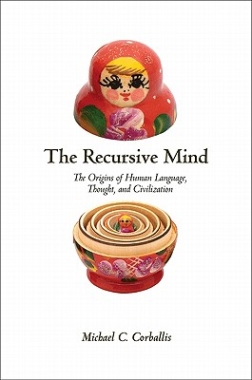- HOME
- INTRO TO THE FORUM
- USE AND MISUSE
- BADLY WRITTEN, BADLY SPOKEN
- GETTING
TO KNOW ENGLISH - PREPARING FOR ENGLISH PROFICIENCY TESTS
- GOING DEEPER INTO ENGLISH
- YOU ASKED ME THIS QUESTION
- EDUCATION AND TEACHING FORUM
- ADVICE AND DISSENT
- MY MEDIA ENGLISH WATCH
- STUDENTS' SOUNDING BOARD
- LANGUAGE HUMOR AT ITS FINEST
- THE LOUNGE
- NOTABLE WORKS BY OUR VERY OWN
- ESSAYS BY JOSE CARILLO
- Long Noun Forms Make Sentences Exasperatingly Difficult To Grasp
- Good Conversationalists Phrase Their Tag Questions With Finesse
- The Pronoun “None” Can Mean Either “Not One” Or “Not Any”
- A Rather Curious State Of Affairs In The Grammar Of “Do”-Questions
- Why I Consistently Use The Serial Comma
- Misuse Of “Lie” And “Lay” Punctures Many Writers’ Command Of English
- ABOUT JOSE CARILLO
- READINGS ABOUT LANGUAGE
- TIME OUT FROM ENGLISH GRAMMAR
- NEWS AND COMMENTARY
- BOOKSHOP
- ARCHIVES
Click here to recommend us!
READINGS IN LANGUAGE
This section features links to interesting, instructive, or thought-provoking readings about the English language and related disciplines. The selections could be anywhere from light and humorous to serious and scholarly, and they range widely from the reading, writing, listening, and speaking disciplines to the teaching and learning of English.
Translation as a nonliteral match for utterances in a foreign tongue
An erudite yet playfully provocative book, David Bellos’s Is That a Fish in Your Ear?: Translation and the Meaning of Everything (Faber & Faber, 373 pages), debunks the conventional wisdom that all translations can at best only be inadequate renditions of the original considering that each language creates an essentially different mental world. On the contrary, Bellos argues in the book, a good translator can always find adequate nonliteral equivalents for even exceedingly formal prose or poetry into another language. He says that translation, rather than just aiming to come up with an understandable substitute for the original, instead “provides for some community an acceptable match for an utterance made in a foreign tongue,” and that what makes the match acceptable varies according to the community’s idea of what aspects of an utterance need to be matched by its translation.

Bellos, professor of French and comparative literature at Princeton University, knows whereof he speaks. He makes his conclusions about the craft and discipline of translation from a wide-ranging historical survey of its various forms—literary, diplomatic, cultural, political, economic—and from his own experience in successfully translating into English a notoriously difficult literary work in French and another in a French translation from Albanian.
“The practice of translation rests on two presuppositions,” Bellos says in the book. “The first is that we are all different: we speak different tongues, and see the world in ways that are deeply influenced by the particular features of the tongue that we speak. The second is that we are all the same—that we can share the same broad and narrow kinds of feelings, information, understandings, and so forth. Without both of these suppositions, translation could not exist. Nor could anything we would like to call social life. Translation is another name for the human condition.”
The Scotsman, in its review of Bellos’s Is That a Fish in Your Ear?, says the book is “A wonderful celebration of the sheer diversity of language and the place it occupies in human endeavour. Conducted by a man who clearly knows his stuff, it is a whirlwind tour round the highways and byways of translation in all its glorious forms, from literary fiction to car repair manuals, from the Nuremberg trials to decoding at Bletchley Park.”
Read Adam Thirlwell’s “The Joyful Side of Translation” in The New York Times now!
Read Michael Hoffman’s “An inquiry into the finer points of translation” in The Guardian UK now!
ABOUT THE AUTHOR:
David Bellos, an English-born translator and biographer, currently teaches French and comparative literature at Princeton University where he is also the director of its Program in Translation and Intercultural Communication. He made an award-winning translation from the French of Georges Perec’s most famous novel, Life: A User's Manual,in 1987, then won the first Man Booker International Prize for translation in 2005 for his translations of works by Albanian author Ismail Kadare. He was awarded the Prix Goncourt de la biographie for his book on Perec.
OTHER RELATED READINGS:
A new theory of language. In The Recursive Mind: The Origins of Human Language, Thought, and Civilization (Princeton University Press, 291 pages), Michael C. Corballis, professor emeritus of psychology at the University of Auckland in New Zealand, challenges the commonly held notion that language is what makes us uniquely human. He draws on neuroscience, psychology, animal behavior, anthropology, and archaeology to show that the capacity of humans for recursion—the ability to embed thoughts within other thoughts—led to the emergence of language and speech, which ultimately enabled humans to share their thoughts, plan with others, and reshape their environment to better reflect their creative imaginations.

Whither the apostrophe? In “Is This the Future of Punctuation!?”, an essay that came out in the October 22, 2011 issue of the Wall Street Journal, Henry Hitchings, British author, reviewer and critic specializing in language and cultural history, ponders the misuse of the apostophe and the increasingly rhetorical character of the English language. “People fuss about punctuation not only because it clarifies meaning but also because its neglect appears to reflect wider social decline,” he says. “And while the big social battles seem intractable, smaller battles over the use of the apostrophe feel like they can be won.”
Read Henry Hitchings’s “Is This the Future of Punctuation!?” in the Wall Street Journal now!
Click to read comments or post a comment
View the complete list of postings in this section
(requires registration to post)






